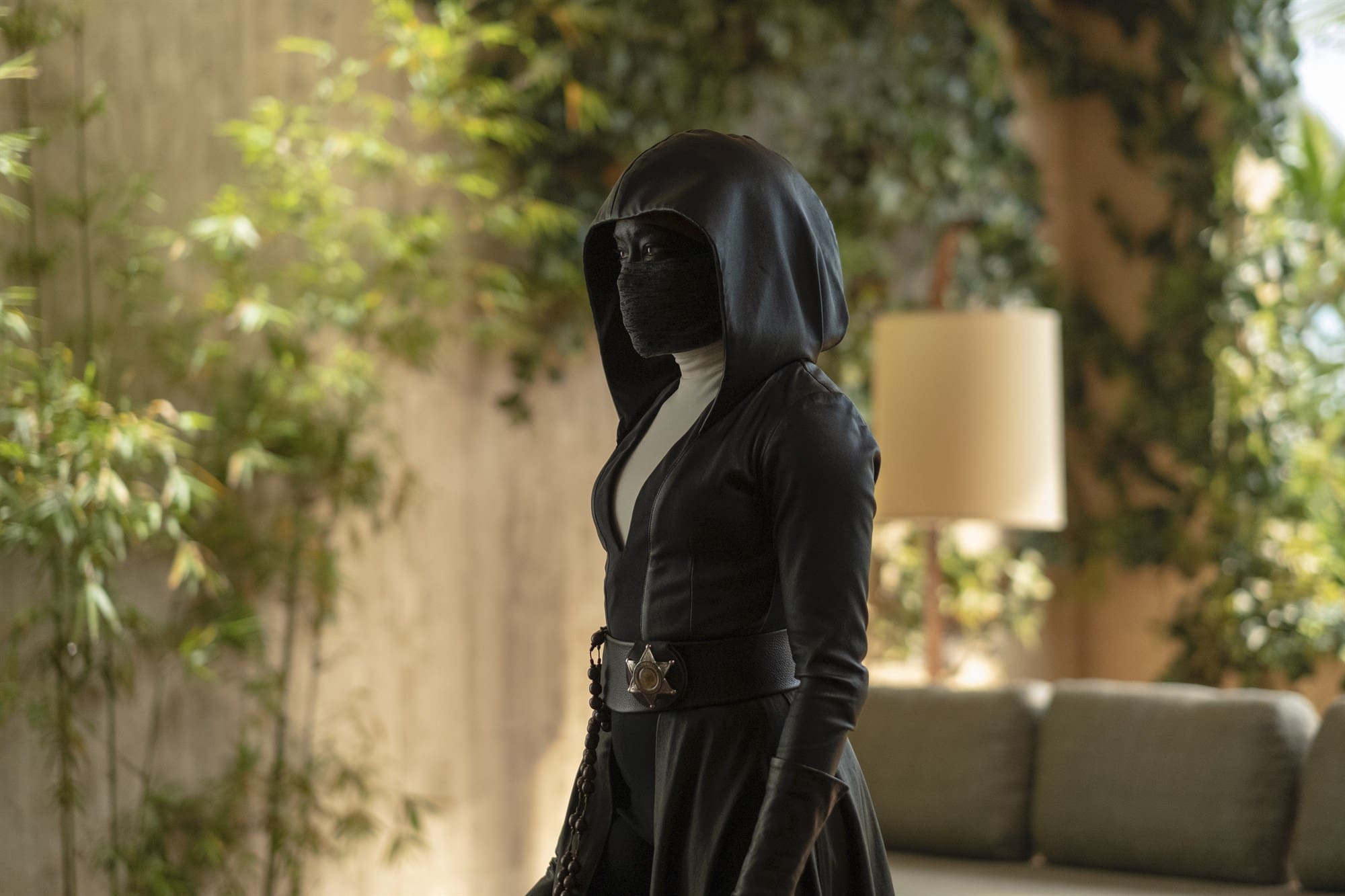
Conspiracies and world building became even more dense and complex amid themes of legacy and inherited traumas in another head-scratching, yet rewarding episode.
The Watchmen Episode 4, “If You Don’t Like My Story, Write Your Own,” began with a masterful cold open using a capitalistic inversion of the Superman origin story to introduce a new and formidable principal character. Trillionaire Lady Trieu (Hong Chau) forces the happily married-but-childless Clarks (subtle) to make a choice between keeping their family farm or their new genetically engineered biological child. As Trieu cockily anticipated, they sign away their house and property an instant before some presumably alien technology falls out of the sky into the fields. The main takeaway is that for average humans, which we can safely assume Lady Trieu is not, blood legacy inevitably wins out over material.
An undisclosed amount of time later, Trieu looks to be building a corporate empire in the heart of Tulsa in what she calls “the first wonder of the new world.” Trieu is as enigmatic as she is powerful, and even detail we do know about her is quickly accompanied by more secrets. What information can be gleaned from her reclusive lifestyle is a testament to the show’s ability to masterfully convey pages of information in seconds.
Her connection to Adrian Veidt (Jeremy Irons) is clearly significant, as she appears to be the new Ozymandias for the new age of Watchmen. Trieu not only bought out Veidt’s company following his disappearance, but more than likely used the same cloning procedure to create her daughter, Bian, as we see him using to create his servants, Mr. Phillips and Ms. Crookshanks. Could she be Veidt’s captor whom he desperately longs to escape? It would explain the size of his estate prison as well as the likeness of her gold statue of Ozymandias long after anyone has seen him. What she could be doing with Will Reeves (Louis Gossett Jr.) remains a mystery, but we at least have a definitive answer to what “friends in high places” meant.
Veidt’s defining trait is his disregard for human life. It is what made his inter-dimensional squid bomb possible and it manifests itself every episode with Phillips and Crookshanks. Our peek into his cloning process pays special attention to the way he callously tosses the fetuses he deems non-viable back into the lake to drown. Then he shows the latest iterations of his servants a horror show in his dining room of dozens of their mangled and mutilated bodies. Phillips and Crookshanks are the other side of the cold open’s legacy argument. They may be blood, but they are as disposable as they are replaceable. Life in this world is as material a commodity as anything else.
Finally, Angela (Regina King) and Looking Glass (Tim Blake Nelson) shrug off Judd’s (Don Johnson) apparent Klan hood and hide it from Laurie (Jean Smart) as the two women investigate Will’s disappearance and the theft of her now useless car. On the way to Trieu’s clocktower, Laurie posits that all heroes and masks are born out of trauma and the desire to hide from it, which clearly touches a nerve in Angela. Her Sister Night mask is a constant reminder of the white supremacist violence she has suffered, and now she understands the equally violent legacy haunting her as Will’s granddaughter. It is clear what Laurie now thinks of those who fight crime wearing masks, but now Angela tries to deny it and prove her wrong.
The best scene of the episode was the confrontation between Laurie, Angela and Lady Trieu in her vivarium as the three ladies each attempted to out-“not impressed” the others through a series of scoffs, eye rolls and dry humor. A scene like that between three incredible actresses is what makes Watchmen the energetic, entertaining experience that it is as well as simply exceptionally made television.
Among a dozen new questions to be answered by this week’s events in Tulsa (Who is the mysterious slippery man? What are Trieu and Will planning? Why will it make Angela hate him? Where is Veidt being held? Could Will walk the whole time?) the biggest one it asks is how we deal with inherited trauma. Laurie defiantly confronts it, Angela hides from it behind a mask, and Lady Trieu is trying and failing to outrun it. All three have a lifetime of experience and pain that makes their method work for very different lives. But whose method is right is likely none of the above.

